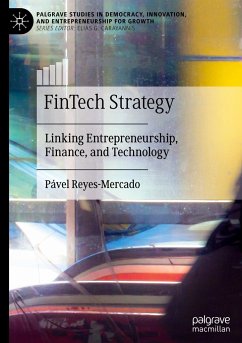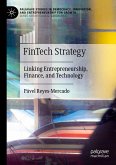This book explores how new and small ventures with comparatively fewer financial resources have been able to compete with big banks and financial institutions. It discusses entry, competition, and growth strategies based on new business models enacted by current FinTech ventures. An analysis of strategies for Fintech and of cases from banked as well as non-banked and underbanked customer segments produces a framework based on effectuation, resulting in a final discussion of the broad societal outcomes of FinTech related to financial inclusion, the digital divide, and the UN's Sustainable Development Goals. This book, linking theory with practical application, offers scholars a comprehensive strategic view on FinTech from effectual, causal, and entrepreneurial innovation standpoints.
Bitte wählen Sie Ihr Anliegen aus.
Rechnungen
Retourenschein anfordern
Bestellstatus
Storno








